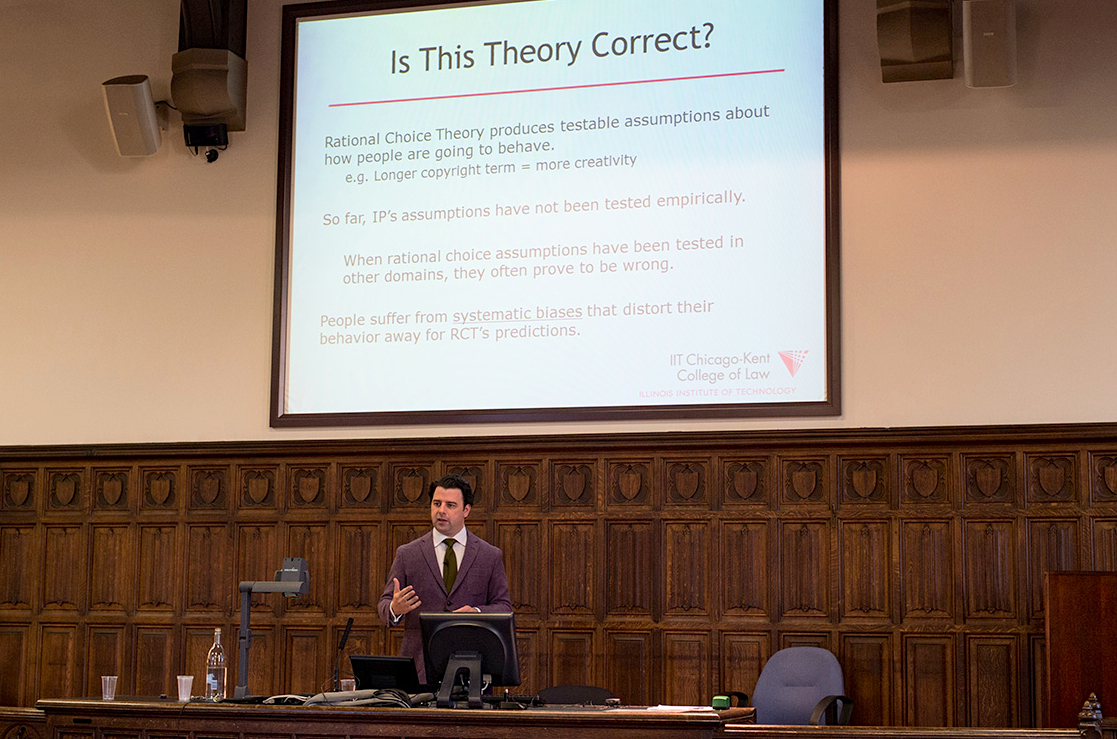 On Tuesday 10 March, visiting scholar Christopher Buccafusco (IIT Chicago-Kent) delivered a public lecture as part of CREATe’s March line-up of events. His highly stimulating and compelling presentation took place in the suitably arranged Humanities Lecture Theatre at the University of Glasgow. The audience included colleagues from across law, business, management, economics, art history, as well as IP students from the Law School’s LLM programme.
On Tuesday 10 March, visiting scholar Christopher Buccafusco (IIT Chicago-Kent) delivered a public lecture as part of CREATe’s March line-up of events. His highly stimulating and compelling presentation took place in the suitably arranged Humanities Lecture Theatre at the University of Glasgow. The audience included colleagues from across law, business, management, economics, art history, as well as IP students from the Law School’s LLM programme.
One driving purpose of Buccafusco’s research agenda (with Christopher Sprigman, Zachary Burns, Jeanne Fromer and Stefan Bechtold) is to investigate whether intellectual property laws which restrict downstream borrowing are overly restrictive in the sense that they prevent reaching an optimal level of creative production. His presentation persuasively argued that in fact, such a widely scoped copyright may reduce downstream innovation, demonstrating via a series of laboratory experiments that subjects tend to overvalue their own creative outputs, diminishing the possibility for licensing transactions that would otherwise permit derivative uses.
In another set of experiments which gave participants the opportunity to re-use portions of a solution to a puzzle or forge their own path in exchange for a bonus, the researchers found that some participants appeared to underestimate the cost of innovating, doing so when borrowing would have been more profitable. Broadly, Buccafusco and his co-authors suggest that other factors – such as individual proclivities and skills – may stimulate different kinds of creative solutions in different circumstances. A copyright system predicated on rational choice theory might not encourage optimal levels of innovation in all cases. For example, by granting a long term of ownership and a large scope to exclude, copyright law encourages innovating when it may not be the best option for creators who could borrow at lower cost from a neighboring and similar work.
Needless to say, this is very exciting research and relevant to many of the projects currently underway by the CREATe consortium. I look forward to seeing how the project develops and what further innovations in experimental research emerge from Buccafusco and his team’s imaginative approach.
Access Buccafusco’s previous research on experimental tests of copyright incentives here.
